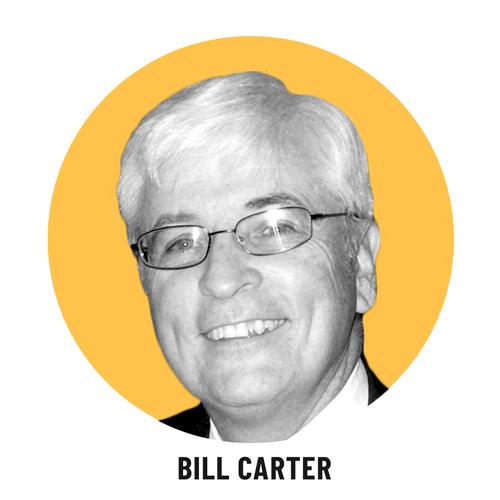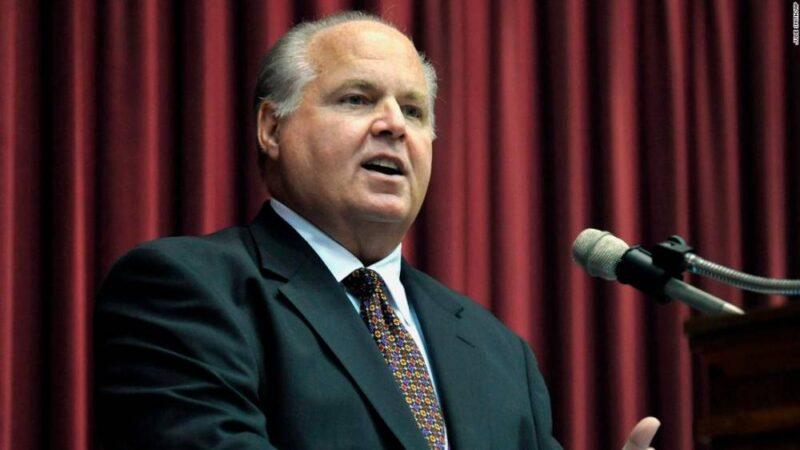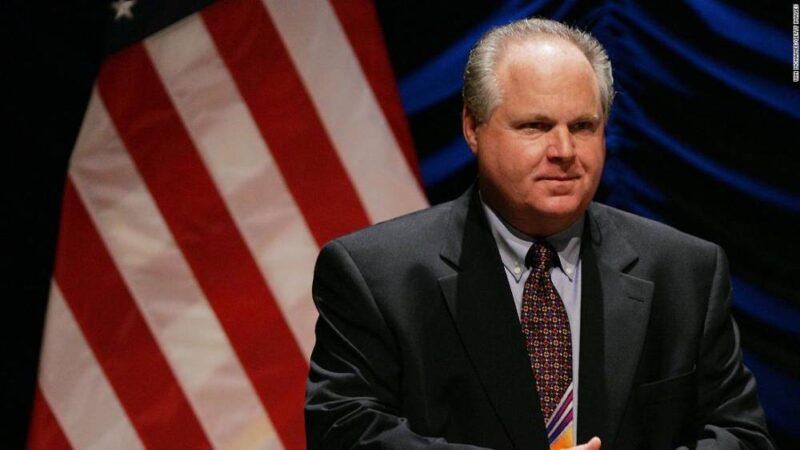Bill Carter, a media analyst for CNN, covered the television industry for The New York Times for 25 years, and has written four books on TV, including The Late Shift and The War for Late Night. The opinions expressed in this commentary are his own.

Rush Limbaugh was, without question, the most important figure on American talk radio, probably since Father Charles Coughlin, his most conspicuous predecessor.
Coughlin, a Roman Catholic priest, was a widely controversial figure who amassed a huge audience in the 1930’s by mixing his post-Depression-era radio broadcasts about monetary reform with anti-Communist and anti-Semitic hate speech.
But he was ultimately forced from the air because his views were so impolitic stations eventually could not tolerate them.Limbaugh was a much more engaging broadcaster, wildly funny at times, a mimic, a deliberate buffoon — an entertainer, for sure. But he was also much luckier than Coughlin.Limbaugh was able to build a talk-radio empire because, while the audience for a similar kind of bigoted, mean-spirited messaging may have been the same (or even larger) than it was in the 1930’s, tolerance for it in the media business was much greater.Read MoreIn 1987, the Federal Communications Commission abolished the Fairness Doctrine. The Fairness Doctrine had required media platforms to present opposing views on controversial issues they report on. Once it was no longer in place, it meant that Limbaugh could suggest the Obama administration was purposely making America vulnerable to the Ebola outbreak in West Africa as a consequence for slavery and accuse Michael J. Fox of greatly exaggerating the effects of his Parkinson’s disease with impunity. A station no longer needed to air an opposing view. (Later, Limbaugh, as he did in several of his most egregious cases, offered a reluctant-sounding apology to Fox.)

What's next for Rush Limbaugh's show?Shock tactics aside, Limbaugh was, unquestionably, a true pioneer. He opened up the talk-radio business to unabashed extreme commentary and it flourished, even as terrestrial radio struggled to survive. In cities all over America, local radio stations found voices that echoed Limbaugh’s far-right rants. And his approach made a lot of money for people all over the radio business.Not as much as he made for himself, but still. Limbaugh did not hide his desire to get massively rich from pontificating so bombastically on the radio. He signed an eight-year deal worth $400 million in 2008. That’s serious money. No wonder he didn’t like Democrats talking about wealth inequality. The terms of his next contract, a four-year deal with iHeartRadio announced in 2016, were not disclosed.Some sponsors were also remarkably tolerant of Limbaugh, most likely because of the ratings he was pulling in. He was occasionally targeted for ad boycotts, but he generally recovered well.As happened in 2012, when a Georgetown University law student named Sandra Fluke testified in Congress, arguing that insurance companies should cover contraception. Limbaugh went after her with a bazooka.Limbaugh wanted to know: “What does it say about the college co-ed [Sandra] Fluke, who goes before a congressional committee and essentially says she must be paid to have sex?” And went on to refer to her as a “slut” and a “prostitute.”Later he wanted the taxpayers to get something back for their investment. “If we are going to pay for your contraceptives and, thus, pay for you to have sex, we want something for it. And I’ll tell you what it is. We want you to post the videos online so we can all watch,” Limbaugh said. There was a bit of blowback. It included calls for stations to drop the show. Many sponsors quit the show. Limbaugh was apparently concerned, because two days after the initial remarks he apologized — sort of — saying his “choice of words was not the best, and in an attempt to be humorous, I created a national stir.”But Limbaugh rebounded. And then, of course, last year President Donald Trump awarded Limbaugh the Medal of Freedom.

Fight over Rush Limbaugh's true legacy began immediately after his deathClearly Limbaugh touched a nerve — lots and lots of them. And he moved millions. Partly that was because he was a really talented performer (especially early on, his show was consciously a performance more than a collection of political statements); but it was also because he did more than speak to his listeners. He validated them.They came to him daily — in cars and on the beach or around the pools at retirement villages. They came to him for entertainment — and affirmation.Millions of people wanted to know that views that were being disparaged elsewhere as hate-filled or hidebound — like thinking that “the NFL all too often looks like a game between the Bloods and the Crips without any weapons”— were absolutely valid. He made it all fun to kick around on the radio for three hours a day.But he also created an industry. A vast one. Because he long preceded Donald Trump, he is arguably the figure most responsible for the conservative brand as it exists today.
There is a straight line from conservative talk radio to Fox News, Newsmax, One America News — and a more curved, twisted line to groups that supported Trump so emphatically. Dittoheads, as Limbaugh’s audience merrily called themselves, and followers of conservative radio voices all over the country, could easily be seen as forerunners of the Tea Party, MAGA and QAnon.They loved Rush because he liked the people they liked, and he didn’t like the people they didn’t like. And they got so many great laughs when he made fun of the latter.
Source: edition.cnn.com

